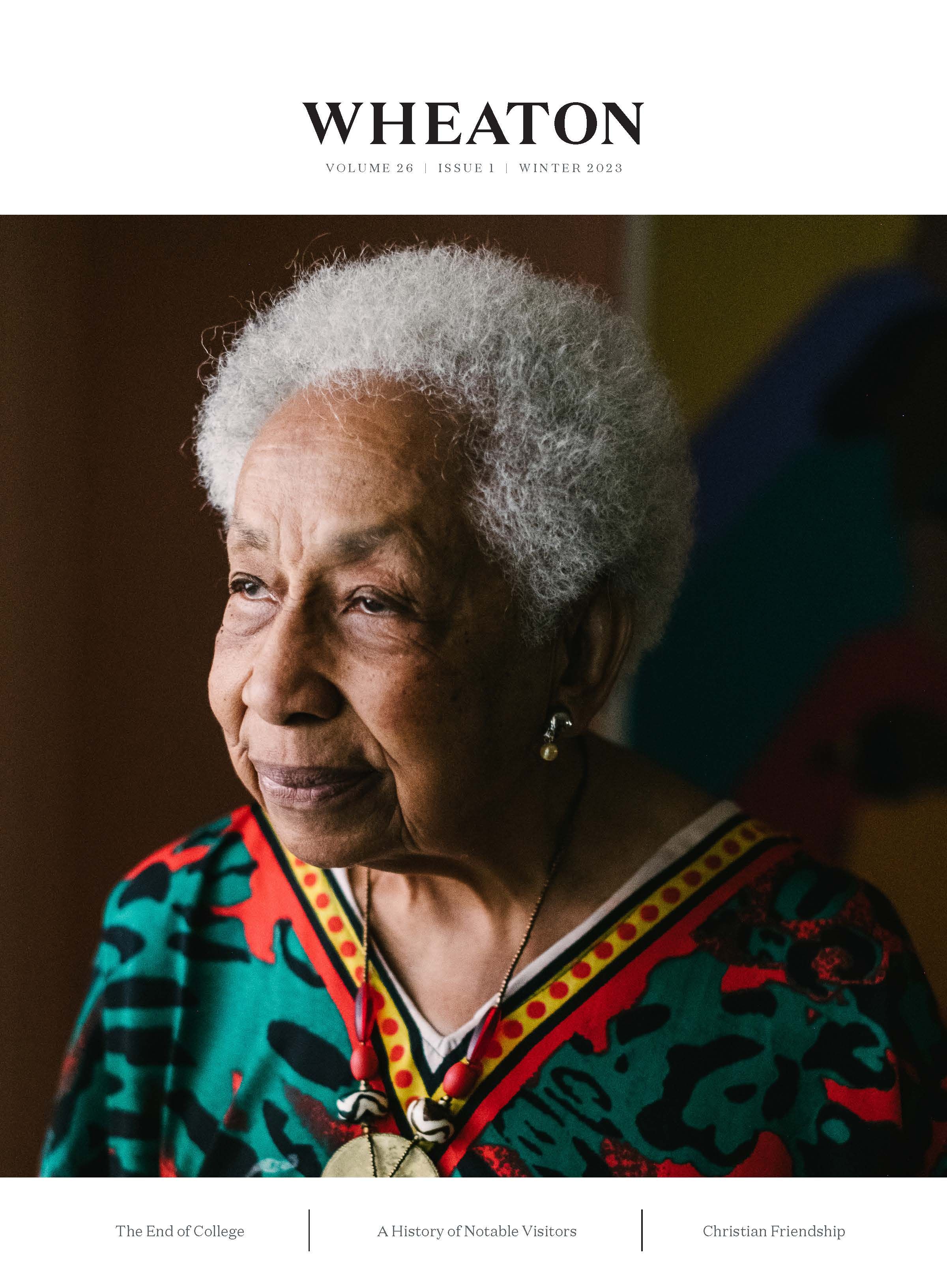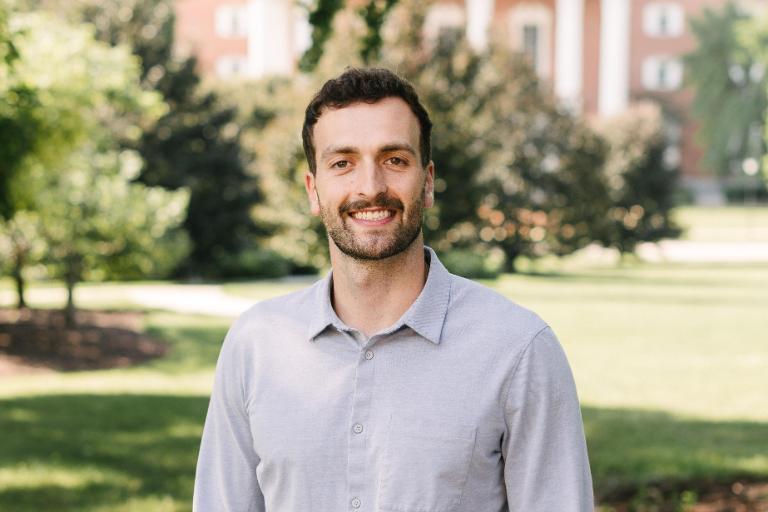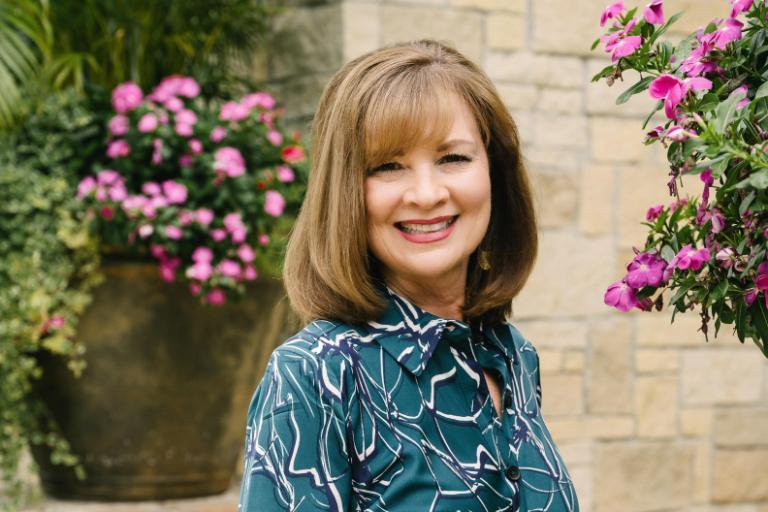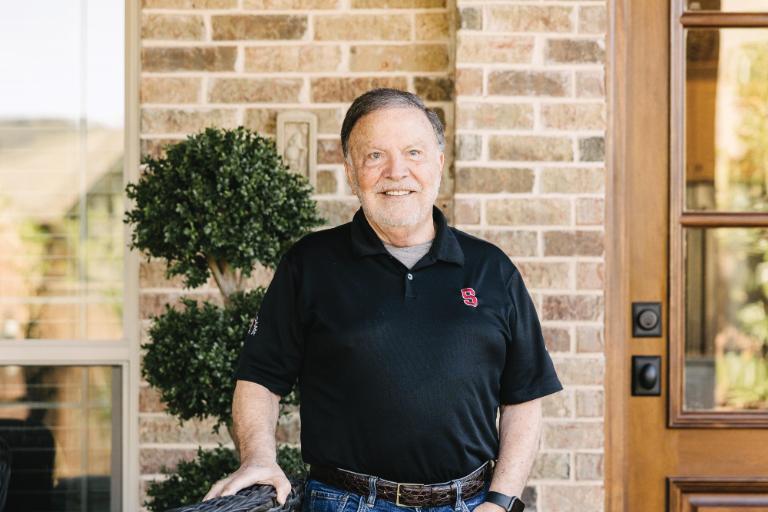An Unfinished Song
Between missions and motherhood, Amy Shaw ’94 has made it her life’s work to walk alongside others in the valleys of life, drawing from her own suffering as an opportunity to glorify the Lord.
Words: Cassidy Keenan ’21
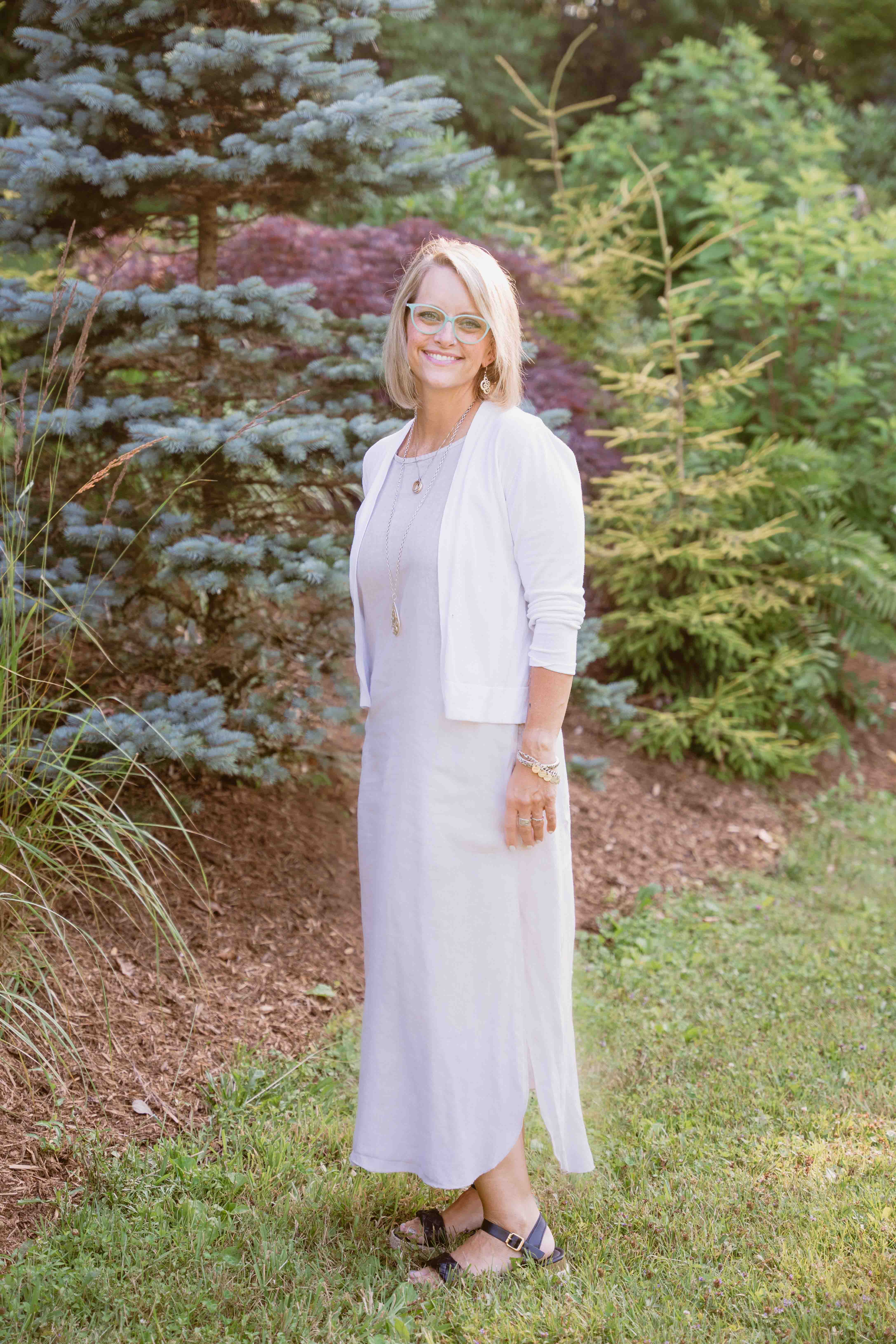
“Even in the beginning, the Lord didn’t want me to be about my glory. He wanted me to be about his.”
Amy Shaw feels as though she has lived a multitude of lives. From Wheaton College to the mission fields of East Asia, from her efforts to raise money for refugee families to her multiple forays into international adoption, from being a wife and mother to experiencing enormous tragedy and loss, each one of these seasons of life has proved more remarkable than the last. And when asked about her experience with any of these joys and trials, her answer remains consistent—to God be the glory.
Shaw graduated from Wheaton College in 1994, receiving a degree in Christian education with an international missions concentration. She describes this period of her life as an incredibly formative time, during which she experienced a solid community of believers and began to refine and grow in her faith. Wheaton helped her to determine what was true, from sharing meals with trusted professors to simply reading the gospels with new and independent eyes. However, it is the friendships she made that have truly stood the test of time. Even now, outside of the classroom and what feels to her like several lifetimes later, Shaw’s former classmates and mission trip partners continue to surround her in the good times and the bad.
Wheaton was the place where Shaw experienced God’s call to the mission field for the first time, hearing him speak almost tangibly within the walls of Edman Chapel. “I was really seeking to know what to do with my life,” she said. “Even in the beginning, the Lord didn’t want me to be about my glory. He wanted me to be about his. That was the beginning of an upending of my life. I would say that my life has followed that theme pretty faithfully.”
Shaw’s rich career on the mission field also contained many transitions. Her first several years serving in a province of Indonesia as a young woman were busy, but she still found time to send letters back and forth every few weeks to the man who would become her husband. After contracting two types of malaria, Shaw returned home to recover from her illness and married Brian Shaw soon after. Yet she believes her most impactful mission experience came during her time serving as a married couple in East Asia. “We were married for 24 and a half years, and out of that time, the two years overseas flavored our entire marriage,” she said.
Shaw’s time abroad was filled with both challenges and rewards, including nine-hour hikes to remote villages, experiencing the richness of community in the midst of a language barrier, and sharing in the sufferings of the people she met. In just one of these instances, Shaw served as a link between a baby girl in the village suffering from fatal cerebral meningitis and an organization called Love Without Borders to help her receive medical treatment. The fear of losing his daughter eventually led the baby’s father to a relationship with Christ, making him the first person in the village to accept the gospel message. This also led his wife and several others to become Christians. “And that little girl is still alive today,” Shaw said. “It was this miraculous plan from Christ.”
Even as she has walked alongside others in their suffering, Shaw is no stranger to suffering in her own life. She and her family have endured acute loss, including the death of her son, Oskar, at 39 weeks prepartum, as well as the loss of her husband Brian to cancer in April of 2021. Most recently, Shaw’s father passed away unexpectedly this past December. Since then, Shaw has made it her mission to find purpose in suffering and to share the unexpected joy that she has found in the midst of sorrow. “I truly think that this is my life’s calling, to explain and help people understand that suffering is a gift,” she said. “It’s because I’ve had to rely on the Lord so much that I have his Spirit in me, and his Spirit is gentle, and kind, and good, and self-controlled,” she said.
One of Shaw’s greatest treasures is how the death of her son opened her and her husband’s hearts to adoption, which eventually led them to adopt six children with special needs and from various countries and to open their home to another adult son. Her biological and adopted children all instinctively help each other, meeting one another’s needs without being asked. “In this community of chaos, the things it’s teaching them at the core level, you can’t quantify that,” she said. “Oskar died, and then seven other children were able to be in a family because we became open to that,” Shaw said, pointing to yet another instance of finding glory and purpose in suffering.
However, Shaw’s theology of suffering and understanding of God’s goodness runs even deeper than that. “God is a good God, and suffering is not the only way he teaches,” Shaw explained. She has experienced miraculous and unexpected blessings in tandem with her many trials, including the healing of her eyesight and hearing loss after decades of needing hearing aids. Shaw experiences these moments as an opportunity to commune with God, and a reminder that, though suffering has brought unexpected value and joy, God has so much more for her than just pain. Though she has certainly experienced enormous loss, she maintains that suffering is not the main story of her life. Instead, her legacy is one of joy, being filled and sustained by God’s love on a moment-to-moment basis.
As a person attuned to music and metaphor, Shaw often returns to the image of God singing a song over her life. She hears chords of beauty, pain, diversity, and love. There are sounds of weeping for the harmonies, and lyrics of hope and promise, not only for heaven one day but for the next several years of growing closer to Christ. “There’s more to the song,” she said. “The song is not done. Getting the reality of eternity in your tangible, everyday moments—that impacts everything. And it all comes back to the gospel, or else it wouldn’t be possible.”
